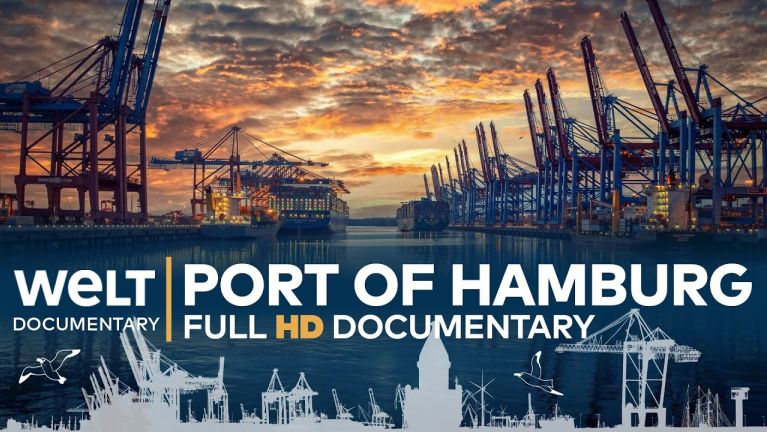AI looks into the future for logistics
Logistics service providers in Germany are seen as digitisation pioneers. They are using artificial intelligence to further improve their processes.

Anyone who knows Hamburg will also be familiar with the city’s port and will have seen the containers stacked as high as buildings at the Altenwerder and Burchardkai terminals. Like in a giant anthill, automatic vehicles shuttle back and forth, transporting the containers to and from the cranes that load and unload ships. Germany’s logistics chains are reminiscent of a gigantic game of building blocks, albeit one with extremely complex rules. Nowadays, these rules involve a lot of artificial intelligence (AI): AI guides the vehicles at the terminals, while smart software monitors transport and storage processes and can predict any damage that the installations might suffer on account of wear. It can even calculate the perfect location for containers so that they can be stacked among the hundreds of thousands of others in a time-, space- and cost-saving manner. The Port of Hamburg has one of the most modern logistics systems in the world - with AI ensuring that Germany’s largest sea port remains the gateway to the world.
Dieses YouTube-Video kann in einem neuen Tab abgespielt werden
YouTube öffnenThird party content
We use YouTube to embed content that may collect data about your activity. Please review the details and accept the service to see this content.
Open consent formSmart systems
Because geopolitical crises, economic fluctuations and the impacts of climate change can disrupt global supply chains, logistics experts are making them more adaptable, intelligent and sustainable. Smart systems that learn and evolve are increasingly being used in logistics. Eleven percent of all companies in Germany are now using AI in their supply chains – according to consulting firm Accenture, the figure worldwide is nine percent. As a result, firms are developing and producing new products more quickly and also getting them to market more quickly, giving them a competitive edge over their slower rivals.
Logistics is driving innovation
Logistics service providers use high-tech software “to increase their efficiency, quality and productivity,” says Bernhard Rohleder, managing director of the IT industry association Bitkom. One in five logistics companies in Germany now works with artificial intelligence, while a quarter of the others are planning to use AI. The industry sees itself as a digitisation pioneer. Even small tools make supply chains more efficient. This can be anything from AI-supported document processing or control of incoming goods and stock management to resource and transport planning in the area of distribution.
AI tools calculate the optimal delivery routes and ideal utilisation of containers, truck trailers and swap trailers (which look like containers but are not stackable and therefore aren’t approved for sea transport) to reduce transport costs and avoid unprofitable deadheading (when lorries travel empty). Service providers and haulage companies use AI tools to accelerate processes at transshipment points and make them more transparent. AI automatically measures hundreds of thousands of incoming parcels. Because this makes them clearly identifiable, the individual parcels can then be transported along a highly efficient, digitally guided and controlled supply chain.
Valid forecasts
Because humans are relieved of time-consuming routine tasks thanks to AI tools, they can concentrate on complex decisions and react more quickly when problems arise. The biggest potential advantage of AI probably lies in its ability to forecast and plan the demand for materials or transport capacity. AI can sift through, structure and analyse quantities of data that humans simply cannot cope with. On the basis of historic and current data, AI then creates forecasts that are becoming ever better as growing digitisation results in more and more data. This allows the industry and service providers to predict possible faults - be they due to changes in the weather, political risks or raw material bottlenecks - and, ideally, to take preventive action. Human gut instinct, which has traditionally played an important role in the industry, is thus being increasingly complemented by AI and high tech.



